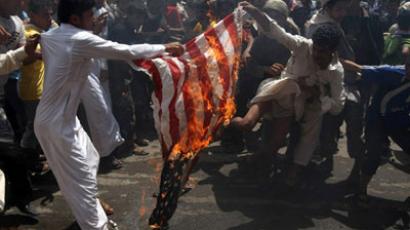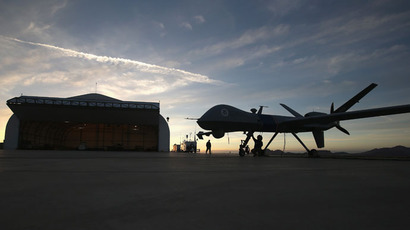Mr Marlboro burned: Al-Qaeda fires terrorist Moktar Belmoktar by letter
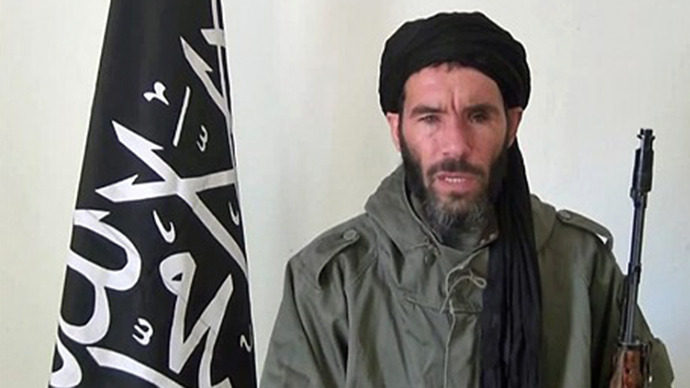
Al-Qaeda's North African branch leaders handed marching orders to one of the most notorious terrorists, Moktar Belmoktar, aka Mr Marlboro. In a letter obtained by AP his bosses complained he never picked up the phone and failed to provide expense reports.
To be directly in touch with Al-Qaeda central, Mr Marlboro set up his own terrorist group after quitting the Al-Qaeda branch. It carried out two lethal operations which killed 101 people. One of them, at a BP-operated gas plant in Algeria in January this year, became one of the largest hostage-takings in history; the other, simultaneous bombings at a military base and a French uranium mine in Niger, took place last week.
The 10-page letter, dated October 3, was discovered by AP inside a building formerly occupied by Al-Qaeda fighters in Mali.
Although in recent years there were multiple reports of Belmoktar allegedly being expelled by Al-Qaeda, the letter found in Timbuktu proves that he stayed loyal to Al-Qaeda in the Islamic Maghreb until last year.
The letter, signed by the group's 14-member Shura Council, describes its relationship with Belmoktar as "a bleeding wound," slamming his decision to resign to establish his own organization.
"Your letter ... contained some amount of backbiting, name-calling and sneering," they write. "We refrained from wading into this battle in the past out of a hope that the crooked could be straightened by the easiest and softest means. ... But the wound continued to bleed, and in fact increasingly bled, until your last letter arrived, ending any hope of stanching the wound and healing it."
Al-Qaeda comes up with 30 complaints on Mr Marlboro
The Shura leaders came up with 30 complaints against their former employee, presented in successive bullet points easy for the eye to go through. They said that Belmoktar, known in Pentagon circles by his initials MBM, had failed to carry out a single spectacular operation despite the resources at his disposal.
"Abu Abbas is not willing to follow anyone," they note, referring to him by his nom de guerre, Khaled Abu Abbas. "He is only willing to be followed and obeyed."
Among Belmoktar’s wrongdoings,
according to his bosses, was the 2008 kidnapping of the
highest-ranking United Nations official in Niger, Canadian
diplomat Robert Fowler, and his colleague. Belmoktar held a pair
of hostages for four months. The letter revealed that the
operation was referred to Al-Qaeda central to force concessions
in the US-led war in Afghanistan, but the plan entered a deadlock
after Belmoktar struck his own deal for about $900,000 for both
men. The sum appeared to be far below the $3 million per hostage
that Western governments would normally be ready to pay in
ransom, according to global intelligence unit Stratfor, cited by
AP.
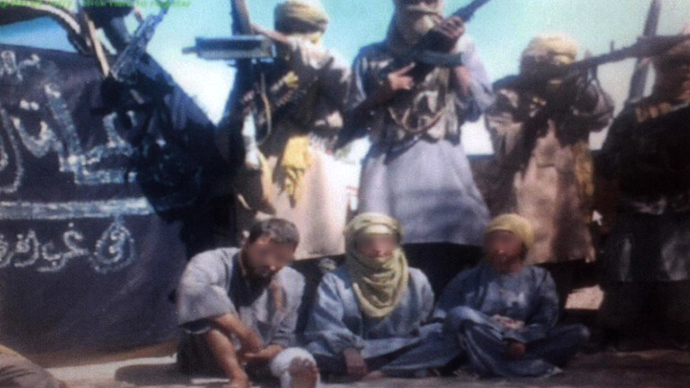
"Rather than walking alongside us in the plan we outlined, he managed the case as he liked," the Al-Qaeda's governing council members wrote in the letter. "Here we must ask, who handled this important abduction poorly? ... Does it come from the unilateral behavior along the lines of our brother Abu Abbas, which produced a blatant inadequacy: Trading the weightiest case (Canadian diplomats!!) for the most meager price (700,000 euro)!!"
It’s also the first time that the letter confirms that payments from European governments went directly toward buying arms to carry out attacks against Western targets. The Al-Qaeda council criticizes Belmoktar for not following such ‘common practice’.
"(The chapter) gave Abu Abbas a considerable amount of money to buy military material, despite its own great need for money at the time. ... Abu Abbas didn't participate in stepping up to buy weapons," the letter says. "So whose performance deserves to be called poor in this case, I wonder?"
‘He drew a lot of attention to himself’
According to his online biography, Belmoktar was born in northern Algeria and traveled to Afghanistan at the age of 19. He trained in Al-Qaeda's camps and lost an eye in a battle.
The former head of counterterrorism for Africa at the Pentagon and one of three experts who authenticated the letter, Rudolph Atallah, told AP it helped shed light on what happened in Algeria and Niger, the attacks that Belmoktar claimed credit for on jihadist forums.
"He's sending a message directly north to his former bosses in Algeria saying, 'I'm a jihadi. I deserve to be separate from you.' And he's also sending a message to Al-Qaeda, saying, 'See, those bozos in the north are incompetent. You can talk to me directly.' And in these attacks, he drew a lot of attention to himself," Atallah said.
Among his other ‘crimes’, according to the council, is that Belmoktar wouldn’t take their phone calls and failure to send back financial reports. They are angry he had ignored a meeting in Timbuktu, calling it "useless" and ordered his men to refuse to meet with Al-Qaeda emissaries. The Shura leaders claimed Belmoktar aired Al-Qaeda’s dirty linen in public, in online jihadist forums.
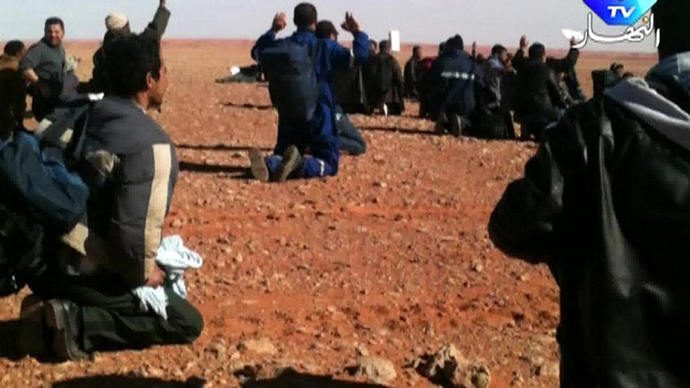
The Shura leaders said he didn’t get on well with his peers either, saying he recently went to Libya without permission from the council. They mentioned the last unit they sent Belmoktar for backup in the Sahara had spent three years trying to contact him before giving up.
"Why do the successive emirs of the region only have difficulties with you? You in particular every time? Or are all of them wrong and brother Khaled is right?" they lamented.
Belmoktar: ‘Our works limited to routine of abductions’
Meanwhile, Belmoktar wasn’t happy with his work for Al-Qaeda either. "Despite great financial resources ... our works were limited to the routine of abductions, which the mujahideen got bored with," he wrote.
He called Bin Laden and al-Zawahri "the leaders of the Islamic nation, not the leaders of an organization alone. We love them and we were convinced by their program. ... So it's even more now that we are swords in their hands."
"Very lovely words. ... Do you consider it loyalty to them to revolt against their emirs and threaten to tear apart the organization?" AQIM replied.
Together with the fighters from ‘The Masked Brigade’, Belmoktar reportedly killed more than a dozen soldiers at a military garrison in Mauritania in 2005 and gunned down four French tourists there in 2007. On multiple occasions Belmoktar was declared dead, including most recently in March, and each time, he re-emerged to strike again.
The sharpest blow in the council's letter may have been the accusation that, despite this history of terrorism, Belmoktar and his unit had not pulled off any attack worthy of mention in the Sahara.
"Any observer of the armed actions (carried out) in the Sahara will clearly notice the failure of The Masked Brigade to carry out spectacular operations, despite the region's vast possibilities — there are plenty of mujahideen, funding is available, weapons are widespread and strategic targets are within reach," the letter says. "Your brigade did not achieve a single spectacular operation targeting the crusader alliance."
In December, Belmoktar declared in a recorded message that he was finally leaving the Al-Qaeda chapter to form his own group, entitled ‘Those Who Sign in Blood’ after the name of an Algerian extremist unit that hijacked an Air France flight in 1994 to fly the plane into the Eiffel Tower in Paris.













